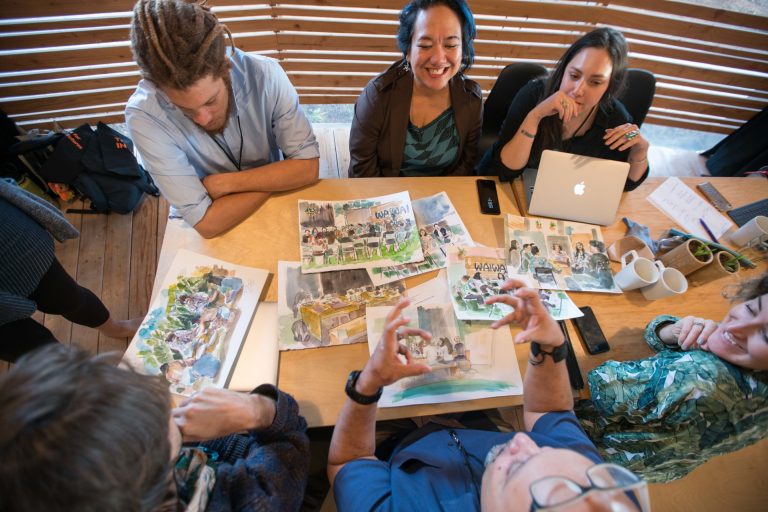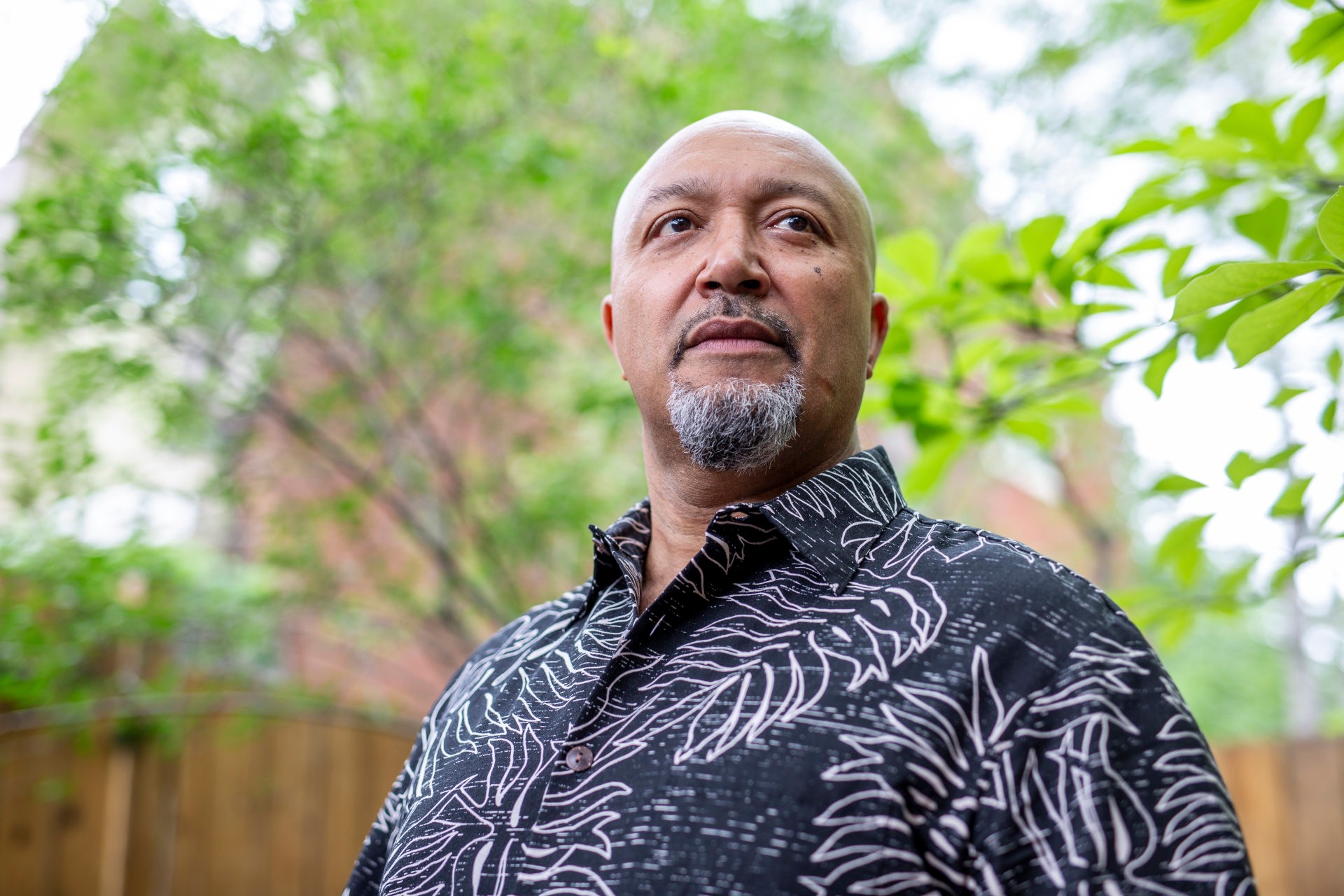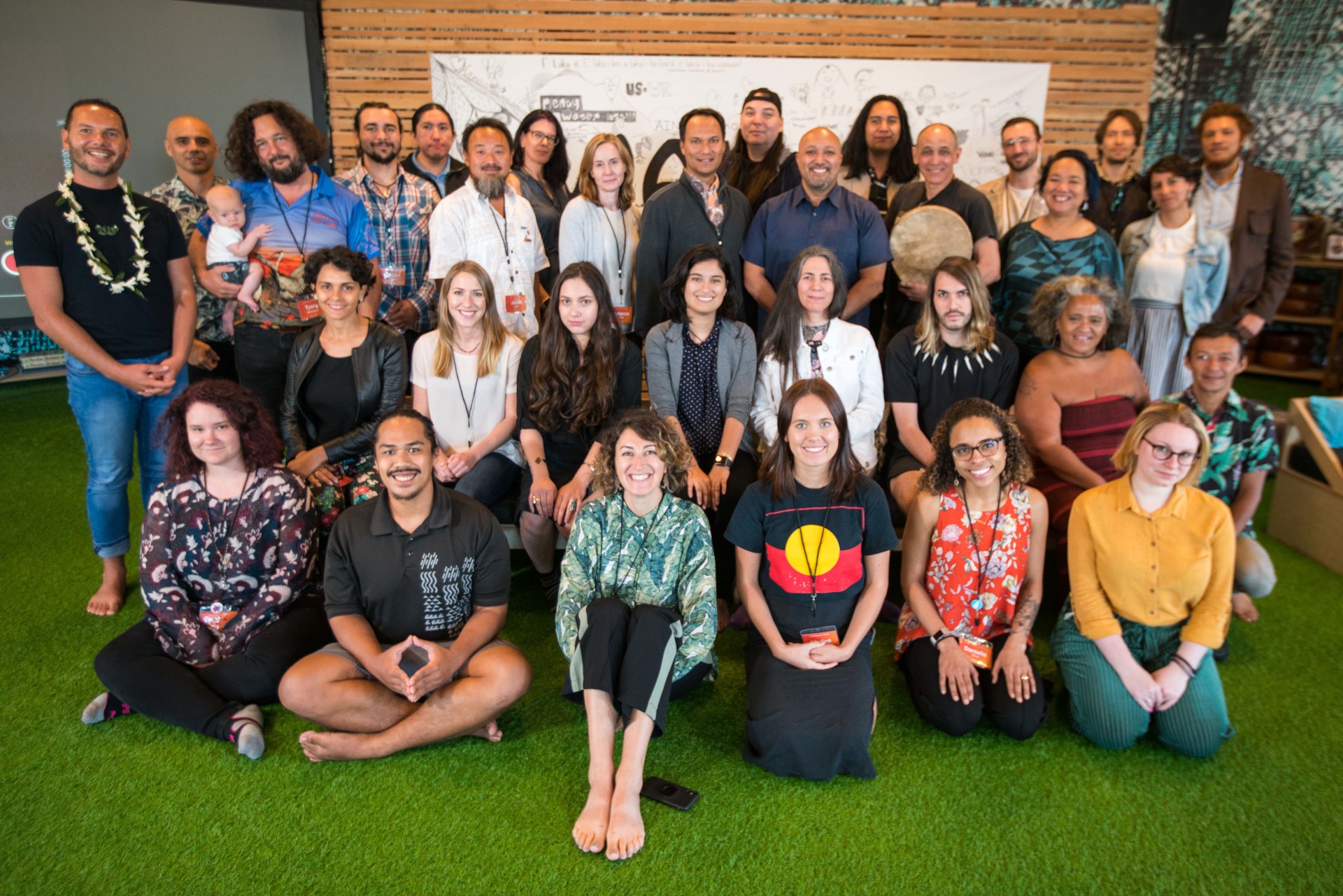Concordia scholar Jason Edward Lewis co-leads a multinational effort to imagine the future of AI from an Indigenous perspective

In the late winter and spring of 2019, a group of Indigenous scholars met in Hawai‘i to think through concepts around artificial intelligence (AI) and how they related to the Indigenous experience.
Co-organized by Jason Edward Lewis, professor in the Department of Design and Computation Arts, the multidisciplinary group included participants from Canada, the United States, Australia, New Zealand and the United Kingdom. Concordia graduate students Scott Benesiinaabandan (MFA Studio Arts) and Suzanne Kite (PhD INDI) as well as Concordia research associate Skawennati also participated.
The first session in March largely consisted of brainstorm workshops about how and where Indigeneity intersects with AI. The second, in May, focused more on writing and laying the foundations of what would become the now-completed Indigenous Protocol and Artificial Intelligence Position Paper.
The 205-page document is a collection of scholarly articles, essays, short stories, poems and tech prototypes, each offering a unique perspective on what AI means and offers to Indigenous peoples. Topics are as diverse as the workshops’ participants: one essay asks us to imagine ways to design AI that align with Indigenous values and ethics. Another questions data sovereignty and appropriation. Others ask how AI can be incorporated into and become a part of creation stories or how blockchain technology combined with AI can be used to manage Indigenous communities’ business affairs.
 Professor Jason Edward Lewis
Professor Jason Edward Lewis
Diverse nations, diverse thought
With workshop participants including representatives from Australian Aboriginal, Hawaiian, Māori, Oglala Lakota, Euskaldun (Basque), Anishinaabe, Coquille, Cree, Crow, Cheyenne and Mohawk, among other communities, Lewis says they really wanted to reinforce the diversity of Indigenous thought.
“We decided that there would be no one format for the position paper; authors should write in the mode that was most effective for them. As a result of that, people felt comfortable and we were able to create a document that still fit together,” he explains.
Lewis, who is also Research Chair in Computational Media and the Indigenous Future Imaginary, adds that the decision to base the workshops in Hawai‘i was both practical as well as personal. The island chain sits neatly in the middle of the Pacific Ocean, reasonably accessible by air from Australia and New Zealand as well as from North America and Europe. Additionally, as a scholar of Hawaiian, Cherokee and Samoan descent himself, it gave him the opportunity to better understand and study his own heritage. Finally, Hawai‘i offered a rich example of what a vibrant, Indigenous-led tech scene can achieve.
“In a way that I don’t think exists elsewhere other than New Zealand, there is a full ecology of Indigenous cultural practitioners, language keepers, critical cultural researchers, scientists, engineers, entrepreneurs and venture capitalists — everything you need to work at the cutting edge of digital technology centred on Indigenous Hawaiian bodies,” he says.
 IP AI working group | Photo by ʻĀina Paika, © 2019 Initiative for Indigenous Futures
IP AI working group | Photo by ʻĀina Paika, © 2019 Initiative for Indigenous Futures
A future alternative
As a document, the position paper acts as a starting point upon which to build an Indigenous voice that can add to the global discussions around the future and implications of AI. Lewis, however, insists it is only a beginning.
“This is about practicing what I call the future imaginary,” he notes. “How do you create the outlines of a future that you want to go toward? How do you build capacity to help get there? We want to ensure that Indigenous voices are a central part of this technology’s development, and that it develops in ways that are beneficial to us.”
As AI progresses and integrates into our daily spaces, Lewis hopes that the position paper inspires young Indigenous programmers to embark on their own projects that do not necessarily start with a traditionally Western, utilitarian, profit-driven perspective. He imagines a programming language based in Hawaiian, for instance, and how that could build capacity to develop AI differently.
The workshops received funding from CIFAR’s AI & Society Program, the Social Sciences and Humanities Research Council (SSHRC) and the Concordia Office of Research.
Learn more about the Indigenous Protocol and Artificial Intelligence Working Group.


